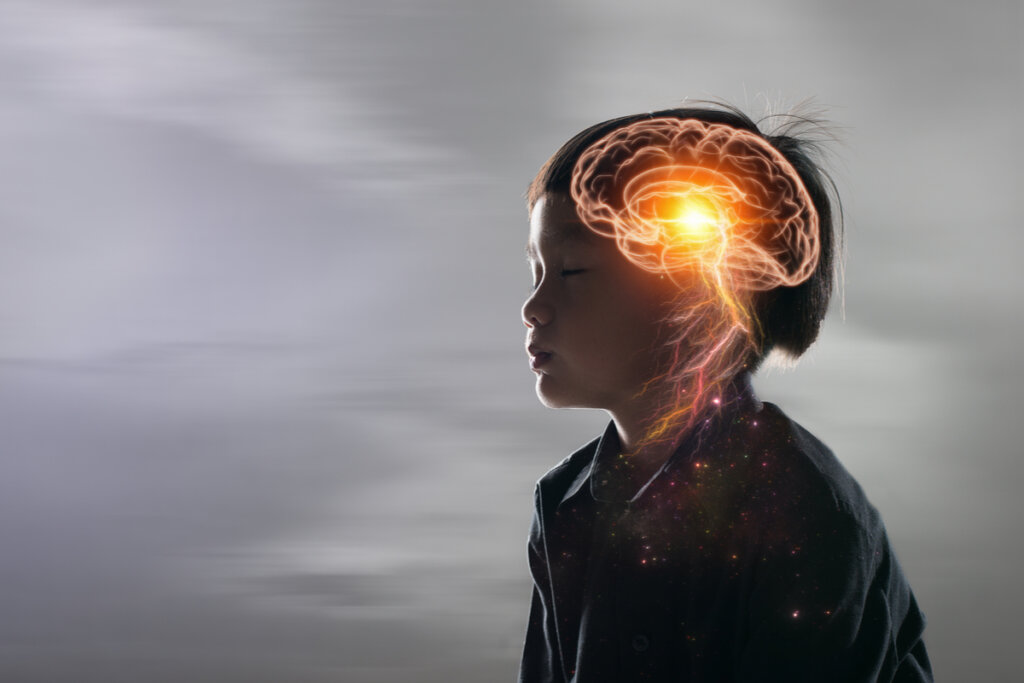Narcissistic Parenting and Its Effects on Children


Written and verified by the psychologist Laura Ruiz Mitjana
Every upbringing is different, and all parents have the right to decide how to educate their children. However, it’s useful to know that there are certain types of upbringing that can have a really negative impact on children’s development. One of them is narcissistic parenting.
This concept, which can also be understood as a narcissistic attachment, refers to a way of raising and educating marked by the particularities of narcissistic personality disorder. We tell you what narcissistic parents are like, the impact of their upbringing on their children, and what children can do to prevent this kind of upbringing from harming them.
What are narcissistic parents like?
According to the DSM-5, narcissistic personality disorder is characterized by a pervasive pattern of grandiosity (in fantasy or behavior), a need for admiration, and a lack of empathy, beginning early in life. People with this kind of personality display the following characteristics:
- Feelings of greatness and arrogance. For example, exaggerating their achievements and talents.
- Being absorbed in fantasies of unlimited success, power, brilliance, beauty, or ideal love.
- Believing that they’re ‘special’ and unique.
- Displaying an excessive need for admiration.
- Demonstrating a feeling of privilege. For instance, they expect favorable treatment or for their expectations to be automatically fulfilled.
- Exploiting interpersonal relationships (taking advantage of others).
- Demonstrating a lack of empathy.
- Envying others.
- Displaying arrogant behaviors or attitudes of superiority.

Narcissistic parenting
So what does a narcissistic upbringing look like? It’s defined as the kind that parents with narcissism apply to their children (with behaviors typical of their personality disorder).
Parents who suffer from a narcissistic personality disorder can show a series of particularities that directly affect the upbringing and development of their children. For example, they:
- Have problems attuning emotionally to their children.
- Lack empathy. This means they’re unable to put themselves in their children’s shoes, making it difficult for them to meet their emotional needs.
- Put their needs before those of their children, due to their selfishness and self-centeredness.
- Show possessiveness. In fact, they have a hard time ‘letting go’ of their children so that they can develop autonomously in a natural way.
- Emotionally manipulate their children so that they pay attention to them.
Effects of narcissistic parenting on children
Parenting plays a fundamental role in children’s physical and psychological development. An investigation conducted by Betancourt and Andrade (2011) concluded that, in adolescents, “Both maternal and paternal psychological control, had a greater influence than behavioral control on the presence of emotional and behavioral problems”.
In the case of narcissistic parenting, this psychological control may exist in the form of manipulation. However, how does this affect children? We’re going to talk about some of its most important effects. We should mention that they don’t always have to appear in narcissistic parents, and they can take other forms, or appear in subtler ways.
1. Handling
An investigation (2021) conducted by the University of Amsterdam (Netherlands) highlights how parents with a narcissistic personality disorder establish abusive relationships through which they blame their children for their own unhappiness.
“Mind control is built on lies and manipulation of attachment needs.”
-Valerie Sinason-
2. Feeling unheard
Children (or adolescents) of narcissistic parents may feel unheard, or even, in more extreme cases, feel that they don’t exist as far as their parents are concerned. This stems mainly from the parents’ selfishness and their difficulties in connecting with their children.
3. Not feeling recognized
Children of narcissistic parents may also feel unrecognized and consider that their emotions aren’t validated. As we mentioned earlier, it’s due to the emotional difficulties of their parents. It directly impacts the children’s self-esteem.
4. Little confidence in their own emotions
This can make the child not trust their emotions, thus generating personal insecurities. They may even feel that they have no right to express their emotions. That’s because when they do express themselves, they’re not listened to or understood.
5. Difficulty connecting with who they are
Another effect of narcissistic parenting on children is that they may feel treated as an accessory, or as a source to satisfy the needs of their parents. For example, so the parents don’t feel alone. Therefore, the child’s own needs go unnoticed.
This can also lead to the child not knowing how to develop a sense of themselves, not being able to know themselves, and consequently not knowing who they are. Furthermore, they may feel manipulated.
6. They’re valued for what they do, not who they are
Due to the tendency of narcissistic people to take advantage of others for their own benefit, the child with a narcissistic upbringing might be valued more for what they do than for who they are (their values, essence, etc).
This can make them afraid of showing themselves as they are. Even more so if they find it difficult to connect to who they are, as we mentioned in the previous point.
7. A controversial demand
Children with a narcissistic upbringing may also receive apparently contradictory messages from their parents. In fact, narcissistic parents might demand that their children do things (extremely) well but, at any given moment, they stop them because they don’t want their children to ‘outshine’ them. This may sound rather controversial, but it can happen, especially with narcissistic parents of teenage children.
8. Attachment and social relationships
A child with narcissistic parents won’t have adequate reference figures or role models to establish healthy emotional relationships. This will have repercussions on their social life and relationships when they’re older. That’s because the way we learn to bond during childhood (attachment) influences how we relate to each other as adults. These children are likely to develop an insecure attachment, which will impact their social relationships when they grow up.
9. Damaged self-esteem
They may grow up feeling that they’re not good enough. This is either because their parents don’t reinforce, praise, or validate them, or if they do, they do so inappropriately. Furthermore, it can damage children’s self-esteem as well as their self-image, which they may also have trouble defining.
10. Impact on brain development
Beyond the psychological effects, research has also verified how narcissistic parenting has an impact on the brain development of children, observing variations in the volume of the brain’s gray matter and smaller size of the hippocampus. This is associated with a high-stress load that they’ve maintained for years.

What can you do if your parents are narcissistic?
Start looking for your own path. Differentiate yourself from them, and learn how to set boundaries. After all, they might be your parents, but they’re not your whole life, no matter how much you love them. However, this is no easy task. Therefore, it’s important that you’re able to lean on other family members or friends and ask them for advice. You might even want to seek professional help.
If you’ve grown up with a narcissistic upbringing, it’ll undoubtedly have influenced you in some way. Taking responsibility for your own life will help.
All cited sources were thoroughly reviewed by our team to ensure their quality, reliability, currency, and validity. The bibliography of this article was considered reliable and of academic or scientific accuracy.
- Betancourt, D., & Andrade, P. (2011). Control parental y problemas emocionales y de conducta en adolescentes. Revista colombiana de psicología, 20(1), 27-41.
- Jabeen, F., Gerritsen, C., & Treur, J. (2021). Healing the next generation: an adaptive agent model for the effects of parental narcissism. Brain informatics, 8(1), 4. https://doi.org/10.1186/s40708-020-00115-z
This text is provided for informational purposes only and does not replace consultation with a professional. If in doubt, consult your specialist.








